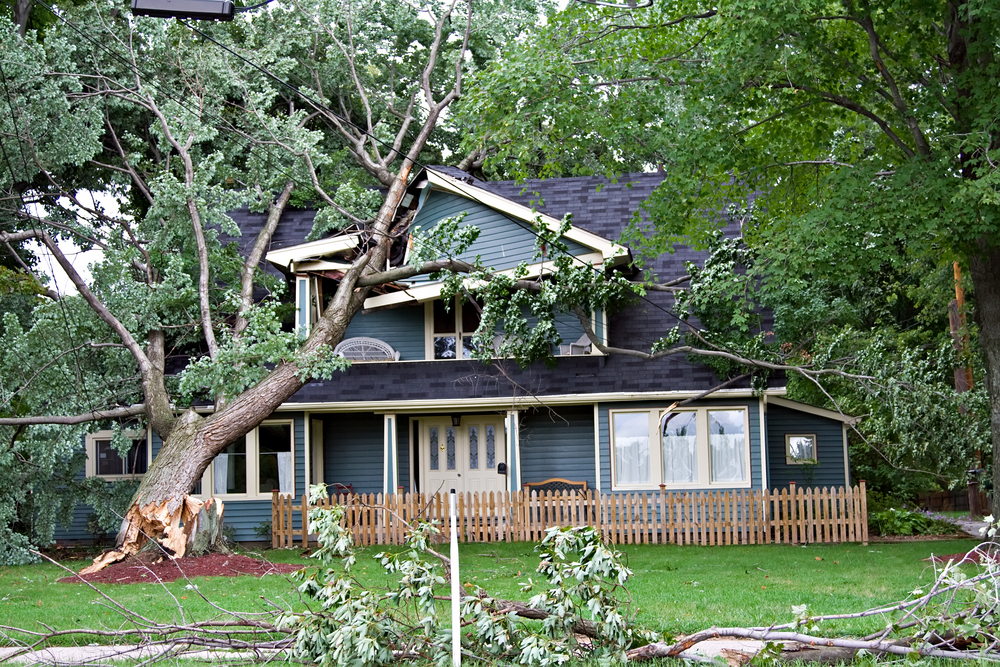It Doesn’t Matter Who Owns the Tree

Winter often brings heavy snow and strong winds which can damage or even knock down trees. If a tree comes down and damages your house, your homeowners insurance will step up to cover the damage, regardless of whether it was your tree or it came from your neighbor’s yard.
A standard homeowners policy will cover damage caused by a falling tree regardless of whether it hits your home, detached garage or other structures on your property (think shed or barn). It will pay to repair the structure as well as any damage to the contents of your home or other detached structures. It doesn’t matter if the tree comes down due to snow, wind, lightning or even hail.
What do I do if a tree falls on my home?
If the tree lands on your home, you need to file a claim with your insurance company regardless of whether it is your tree, a neighbors or even one that traveled miles in a hurricane before dropping on your roof.
Because trees and branches can travel long distances in major storms, insurance companies will not typically try to determine where a tree or branches came from, they will simply pay the claim. If the tree clearly came from your neighbor’s property, your insurer may attempt to collect from their insurance company, but they will pay you directly before pursuing the other insurer via subrogation.
In order to minimize damage, always maintain your trees, keep them trimmed and take down any trees that die as they are more likely to topple in a storm. If you fail to maintain your trees and your insurer can prove that the tree was a known danger, they may deny your claim.
Who Cleans Up the Mess?
If the tree hits your house or other structure on your property your insurance will cover the cost of removing the tree but coverage is often capped at around $500 to $1,000. However, if the tree simply falls on your property and does not hit an insured structure, you will usually be responsible for clean-up costs. It is possible your insurer will cover the cost of removing the tree if it has fallen across your driveway or blocked a handicap ramp.
What do I do if a tree falls on my car?
If a tree or limb falls on your car and damages it, your car insurance would step up, not your homeowners insurance. This is true even if the car is parked in your driveway or carport.
When it comes to coverage for your car and tree damage, you must be carrying comprehensive coverage. This insurance is not a mandatory coverage so you must add it to your policy. Comprehensive covers damage to your car that is not caused by an accident. It provides coverage for weather damage, vandalism, theft, fire and even damage done by animals.
If you are not carrying comprehensive coverage, you will be on the hook repairing the damage the tree did to your car. If you have a loan on the vehicle, your lender will require that you carry comprehensive.
Homeowners Tip: Be Aware of Scams
After a major storm it is not uncommon for an army of scammers to show up looking to prey on desperate homeowners. In many cases they will say they are doing work in the neighborhood and are willing to offer a special price, but it is only good for the day. This is almost never true, legitimate companies will give you an estimate that is good for whenever the work is done, not for just one day.
Never pay for the work in full up front. A good rule of thumb is to put down ¼ of the estimate up front, pay another ¼ at the halfway mark and the remaining ½ when the work is complete. If a company requests payment in full before the work starts, keep searching.
Paying in cash may result in a discount but this leaves you with zero recourse if the work is not completed or done poorly. With a credit card you can dispute the charge if they fail to do the work or not to your satisfaction.
